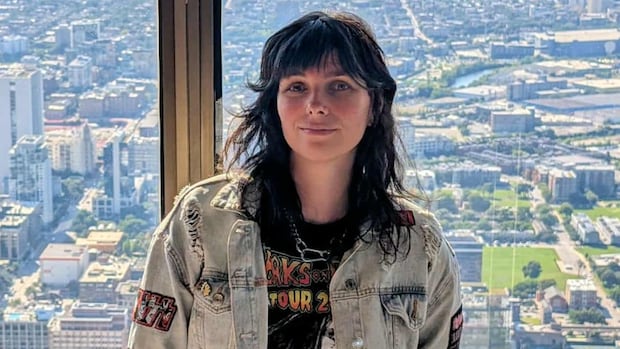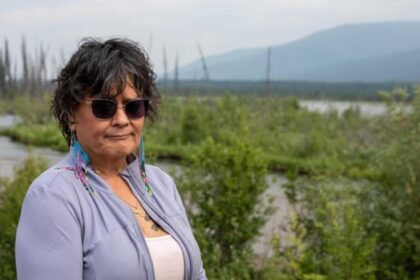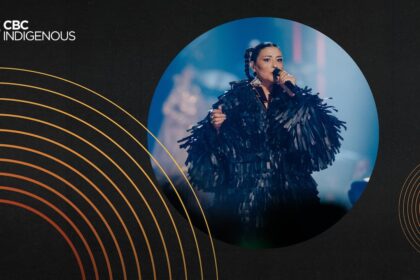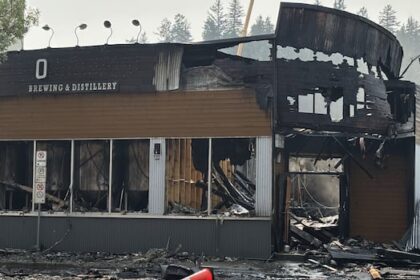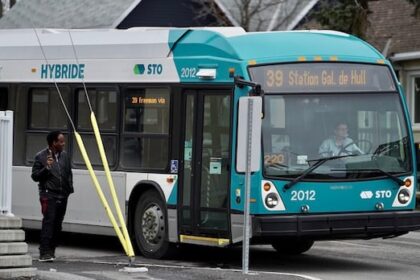PEI·First PersonP.E.I. resident Lynn Paulin knew she didn’t want kids – but when it came to seeking a permanent form of contraception, she was worried she’d be discouraged from doing what she knew was best for her body.I knew I didn’t want kids, but worried I’d face resistance along the wayLynn Paulin · for CBC News · Posted: Oct 26, 2025 4:00 AM EDT | Last Updated: 6 hours agoListen to this articleEstimated 7 minutesLynn Paulin’s decision not to have kids has granted her the flexibility to travel to many different locations in pursuit of her quest to cross off as many artists and bands as possible on her live music bucket list. (Submitted by Lynn Paulin)This First Person column is the experience of Lynn Paulin, who was born and raised in P.E.I. For more information about CBC’s First Person stories, please see the FAQ.“I want to get my tubes tied,” I told the health-care professional on the other end of the line.“Is your husband not willing to get a vasectomy?” she replied.The question made me think: “What does my husband’s willingness to get a vasectomy have to do with a decision I’d like to make for my own body?” She outlined the pros and cons of vasectomy vs. tubal ligation (commonly known as getting your tubes tied). A vasectomy is less invasive and easier to reverse should we change our minds, she explained.But I wanted a form of permanent contraception. I didn’t want children and did not want to continue using birth control.The most effective forms of non-permanent birth control include contraceptive pills, which in my experience come accompanied by a side effects pamphlet roughly the size of a baby blanket when unfurled — and intrauterine devices (IUDs), which until this year, were not covered in Prince Edward Island without insurance. Can you blame a girl for wanting the peace of mind of a permanent solution? Paulin, left, and her husband Shawn Paulin consider themselves practitioners of the DINKWAD (Dual Income, No Kids, With A Dog) lifestyle. (Submitted by Lynn Paulin)The call concluded with a referral to gynecology and a slightly bitter taste in my mouth. But maybe it was because of my own preconceived notions that I took a defensive stance from the start.There have been countless times where my choice not to have children has been challenged, questioned, disputed or dismissed. “Why would you do that?”“You’ll change your mind when you are older.”“Who’s going to look after you when you get old?” Those are just a few responses I’ve gotten over the years to my expressed desire to remain childless. I’m sure I’m not the only one who’s rolled their eyes while being lectured about the joys of motherhood and the regret I will most assuredly feel if I do not fulfill my biological imperative of childbearing (yes, someone has actually said that to me).Some people are born to be parents. My mother was among them. She often told me she felt like her life didn’t truly start until she became a mom and that was reflected in the way she cared for my brother and me.I recognize I am not one of them. For years I waited to be afflicted with the “baby fever” these women, my mom included, assured me would show up as I got older and watched more of my friends become parents. Now into my 30s, the only fevers that have ailed me have been of the trip-taking, concert-going and tattoo-getting variety. In my eyes, a child is an extension of yourself. They are your heartbeat existing outside of your body and if you are not prepared to deal with every possible adversity that comes with being responsible for something so fragile, it’s not worth the risk.While I did not inherit my mother’s proclivity for phenomenal parenting, my brother most certainly did. I suspected long before he ever had a child of his own that being a parent was something he would excel at and seeing firsthand the way he interacts with his daughter only confirmed it. I love my niece, but I also love handing her back to my brother at the end of the day.Paulin, left, and her niece, Navy, during a recent visit. (Submitted by Lynn Paulin)For months, I waited for a call from the obstetrics and gynecology clinic in Charlottetown where I had been referred – all the while being inundated with news articles from south of the border highlighting the regression of women’s rights and control over their bodily autonomy. Though I’ve always felt relatively safe in Canada, the volatile political climate in the U.S. had me worried, and my own experience terminating a pregnancy in my early 20s only added to that anxiety.More than a decade ago, I became pregnant despite having an IUD. Knowing complications can arise as a result of pregnancy while having an IUD, I went to the emergency department. The pregnancy was confirmed and placed at around four weeks’ gestation. When the doctor came to speak to me about my options I was presented with a very blunt ultimatum: continue with the pregnancy or terminate and the baby dies. It felt like an attempt to guilt me out of terminating an unplanned pregnancy. It wasn’t until I was transferred to gynecology that the risks to my own health were addressed and I started to feel like more of a human than an incubator. I realize now that experience as a young woman in a vulnerable position shaped my perception of how women’s bodies are viewed by people in positions of authority. That’s why when the time came for my gynecology consultation, I sat in the waiting room convinced I would be told I was too young, urged to talk it over with my husband or told to take more time to think about the decision. To my delight, I couldn’t have been more wrong. After discussing the reason for my visit, the doctor asked just three questions. “Do you have kids?”“Do you want kids? “Are you healthy?”My answers were met with acceptance and the promise of a surgery date as soon as one became available. I couldn’t believe it was that easy.I realized I had bought into the negative propaganda that leads many women to abandon their quest for reproductive independence. Years of having to justify my decision not to have kids and hearing about the negative experiences of other women navigating the health-care system convinced me that I’d be met with opposition — and not health-care professionals who actually supported me and my right to decide what’s best for my body.On July 4, 2025, just over a month after my consultation, I underwent a laparoscopic procedure known as a bilateral salpingectomy to have both of my fallopian tubes removed. It was a simple day surgery with minimal recovery time. I awoke from an hour-long nap with three small incision wounds, two less reproductive organs and a sigh of relief. While I will never have children of my own, I am perfectly content to bask in the joy that comes with celebrating the milestones and triumphs of my niece and the children of my friends. It is enough for me to play a positive supporting role in their lives, however I can. I am not missing out on the joys of parenthood. I’m watching it unfold around me every day, and then getting eight hours of uninterrupted sleep every night.WATCH | Why fewer people are planning to have kids:Why fewer people are planning to have kids | About ThatResearch suggests a significant shift over the last two decades in the number of North American adults who are planning on having kids. Andrew Chang explores three main reasons for the generational change.Are you an Islander with a compelling personal story that can bring understanding or help others? We want to hear from you. Here’s more info on how to pitch to CBC P.E.I.ABOUT THE AUTHORLynn Paulin is a 32-year-old lifelong Islander residing in Canoe Cove, P.E.I. She spends most of her free time painting, gardening and refereeing wrestling matches between her dogs, Yuna and Tali.
Im childless by choice. Having my fallopian tubes removed in my 30s helped me trust my gut
